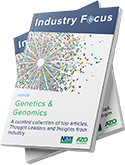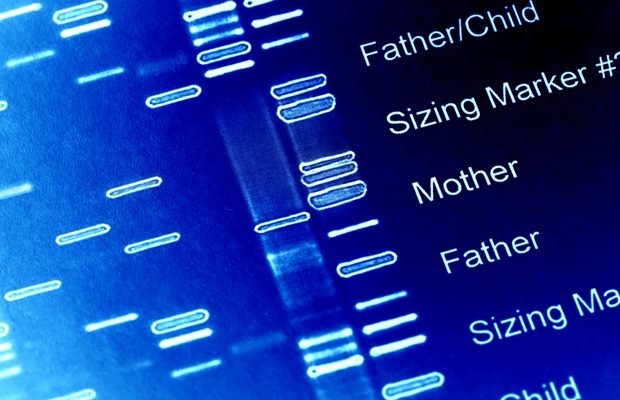University of Queensland researchers have contributed to the largest ever genetic study of endometriosis, finding new data about the variants that increase risk of the disease.
The study found genetic risk factors for endometriosis are also associated with other chronic pain types such as migraine, back pain and multi-site pain.
Dr Sally Mortlock and Professor Grant Montgomery from UQ's Institute for Molecular Bioscience collaborated with University of Oxford researchers and 24 teams across the world to compare the DNA code of more than 60,000 women with endometriosis and 700,000 women without the disease.
Very little is known about the causes of endometriosis, but studying genetics can give us clues to the biological processes that are the basis for onset and progression.
Before this study there were 17 genetic regions associated with endometriosis and now we have 42 regions with much richer data.
It means we can find out what genes in these regions do and find new drug targets, leading to new treatments."
Dr Sally Mortlock, UQ's Institute for Molecular Bioscience
Endometriosis is a severe inflammatory condition caused by tissue that resembles the uterus lining, the endometrium, growing outside the uterus.
It affects 1 in 9 women of reproductive age, or 190 million women globally, and can cause constant and intense pelvic pain, fatigue, depression, anxiety and infertility.
Professor Montgomery has been studying the genetics of endometriosis for more than 20 years and said the study was an important step towards improved treatment and diagnosis.
Genetics & Genomics eBook

"Diagnosing endometriosis has traditionally taken 8-10 years, so having more detailed genetic data puts us in a much better position to be able to speed up that process," Professor Montgomery said.
Dr Mortlock said the shared genetic basis for endometriosis and other types of seemingly unrelated pain may indicate 'sensitization' of the central nervous system.
"This makes people suffering from chronic pain more prone to other types of pain," Dr Mortlock said.
The findings open up new avenues for treatment of endometriosis.
"Perhaps in some cases, we need to be designing pain treatments rather than hormonal treatments," Dr Mortlock said.
The study was led by Oxford University's Professor Krina Zondervan and Dr Nilufer Rahmioglu and included data from UK Biobank and 23andMe.
UK Biobank is a large-scale biomedical database and research resource containing anonymised genetic, lifestyle and health information from half a million UK participants. UK Biobank's database, which includes blood samples, heart and brain scans and genetic data of the volunteer participants, is globally accessible to approved researchers who are undertaking health-related research that's in the public interest.
The research was published in Nature Genetics.
The University of Queensland
Rahmioglu, N., et al. (2023). The genetic basis of endometriosis and comorbidity with other pain and inflammatory conditions. Nature Genetics. doi.org/10.1038/s41588-023-01323-z.
Posted in: Genomics | Women's Health News
Tags: Anxiety, Back Pain, Blood, Brain, Central Nervous System, Chronic, Chronic Pain, Depression, DNA, Endometriosis, Endometrium, Fatigue, Genes, Genetic, Genetics, Heart, Infertility, Migraine, Nervous System, Pain, Pelvic Pain, Research, UK Biobank, Uterus
Source: Read Full Article
